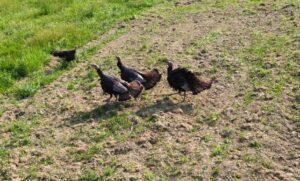Table of Contents
HARRISBURG, PA – The Pennsylvania Game Commission, in partnership with Hawk Mountain Sanctuary, is calling for volunteers to participate in the third Pennsylvania Bird Atlas. This initiative, running until February 2029, aims to document the state’s bird species, their distribution, and population status. The data gathered will be vital for setting conservation priorities for Pennsylvania’s bird species.
Comprehensive Bird Survey
Sean Murphy, the Game Commission’s Ornithologist, emphasized the importance of this atlas, stating, “The atlas will provide a snapshot of the population status and distribution of birds in the Commonwealth. No other bird surveys are as comprehensive, and for that reason, the results are critical to the establishment of conservation priorities for Pennsylvania birds.”
The data collection relies heavily on volunteers from across the state. While there are full-time coordinators and paid bird counters, the majority of the data is expected to come from citizen scientists. These volunteers range from seasoned birders to casual wildlife enthusiasts, making the initiative accessible to people of all expertise levels.
How to Participate
Volunteers are encouraged to observe and record bird sightings using the eBird platform. The first step for interested individuals is to visit the project site and create an account [here](https://ebird.org/atlaspaOpens In A New Window). The site provides all necessary tools, including a volunteer handbook, printable handouts, and access to real-time data through the “explore” tab.
Stefan Karkuff, Avian Recovery Biologist at the Game Commission, highlighted the need for widespread participation, particularly in remote areas. “The results of this atlas are only useful if the data is robust, meaning the more checklists the better,” Karkuff said. “We need contributors from all corners of the state, especially people who live in the more remote parts where there are fewer birders.”
Special Focus and Innovations
This latest atlas will not only document breeding birds, allowing for historical comparisons, but also include a winter survey component. Murphy explained, “I contend that we have much to learn about the distribution and abundance of birds in Pennsylvania in winter, and that a winter atlas effort, as part of a third Pennsylvania Bird Atlas, could set an important baseline for repeating winter atlas efforts in decades to come.”
In addition to traditional survey methods, the atlas will incorporate special surveys targeting hard-to-detect species, such as marsh birds, nightjars, and nocturnal species. Expanded point counts will also be utilized, providing a standardized method to tally birds at fixed positions within a specified time frame.
Importance of Volunteer Contribution
The atlas project represents a significant endeavor in understanding and conserving Pennsylvania’s bird populations. Historical data from previous atlases in the 1980s and early 2000s have already highlighted both positive and concerning trends in bird populations. For instance, the data showed the prosperity of catbirds and woodpeckers, attributed to forest recovery, while also revealing the decline of American goshawks and northern harriers, now listed as state-endangered and state-threatened, respectively.
Murphy emphasized the critical role of volunteers in this endeavor, saying, “Whether an observer submits data for one nesting species or 100, it all goes toward the atlas. If you get on eBird, whether the smartphone app or the desktop version, and enter a record with breeding codes, you’re an official atlaser!”
The comprehensive data gathered will inform future conservation strategies, making every observation valuable. The Pennsylvania Bird Atlas project is a unique opportunity for citizens to contribute to the understanding and preservation of the state’s diverse avian life.




